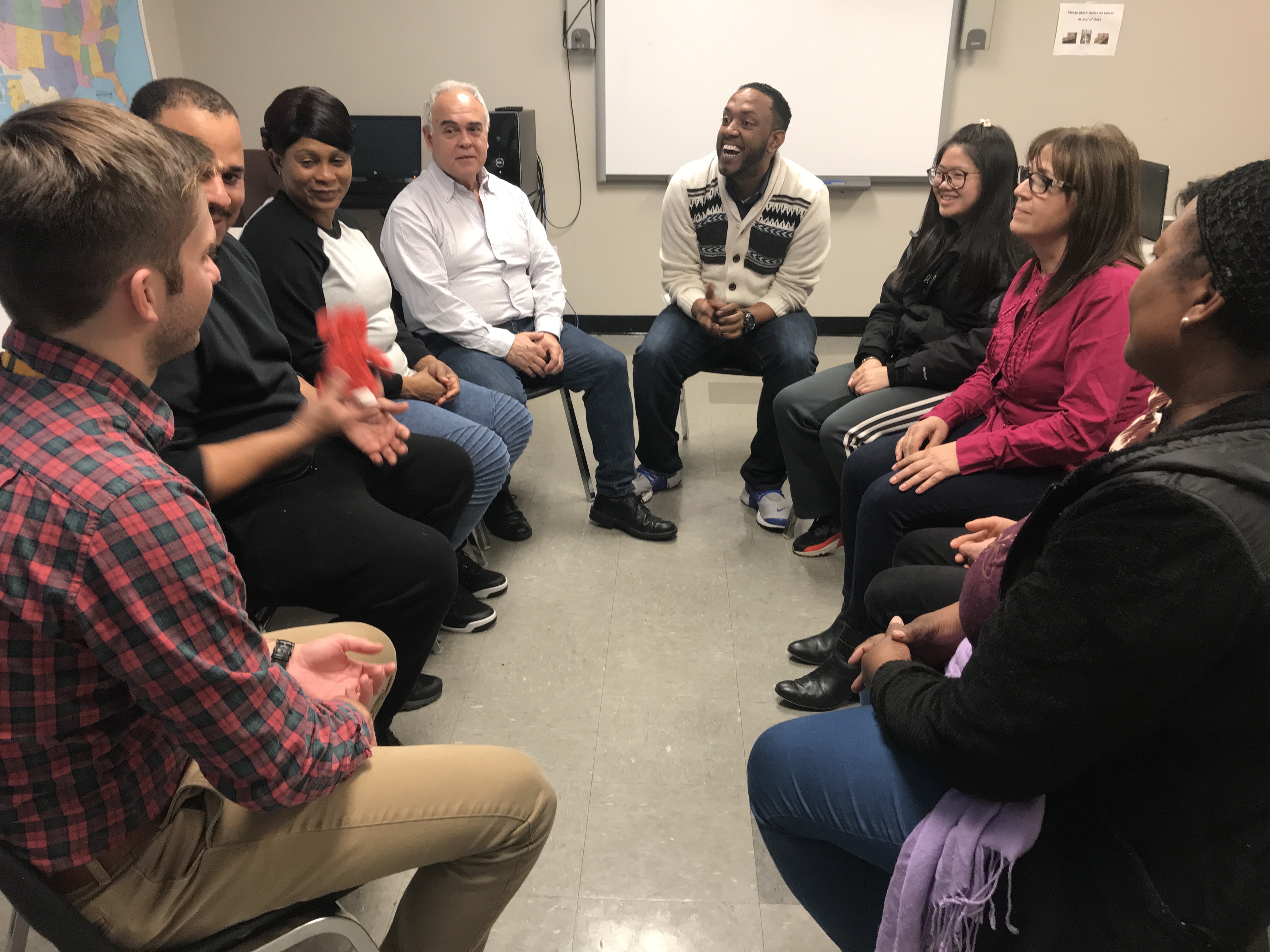Activity: Check-in

Our hope in creating this course is that we can model learning circles as best as possible. As you’ll soon learn, every learning circle follows a four-step method: check-in with your colleagues, do coursework, participate in a group activity, and do a plus/delta reflection at the end. As checking in is the first step in a learning circle, that’s what we will start with now.
Each week, this is a chance to re-familiarize yourself with other learning circle participants, establish your goals for the day, and break up any metaphorical ice that might still be in the room. Here is how we usually check in the first week:
- Ask everybody to get into a circle, either sitting or standing.
- Starting with the facilitator, go around the circle and share:
- Your name
- Where you are from
- One thing you learned recently, (encouraging non-academic responses)
- Each week, you can add additional prompting questions, such as:
- What are you hoping to achieve today?
- How did you get here today?
- Share a story about a meaningful learning experience.
- Share a fun fact about the community you come from.
- Share one thing that you can teach somebody else how to do.
If many participants do not know one another, here is one way to get to know each other before you do the formal check in in the first week:
- Ask people to line up based on some spectrum: we like questions like “how far did you travel to get here today?” and “how well did you sleep last night?”.
- Once people are lined up, ask the people on the ends to share a bit more about their answer.
- Voluntell somebody at one end to walk down the line and introduce themself to everybody else, trying to remember as many names as possible.
- When they are done, count how many people’s names they can remember.
- After this, take two minutes for everybody to introduce themselves to a few other people.
- Once this is done, see if the group can collectively remember everybody else’s name.
- Reflect on the point that a group can generally achieve a better result when everybody contributes their own knowledge, rather than when one person is tasked with being the expert.
And if you’re all alone:
- Introduce yourself on the P2PU community page. We will say hi back! :)